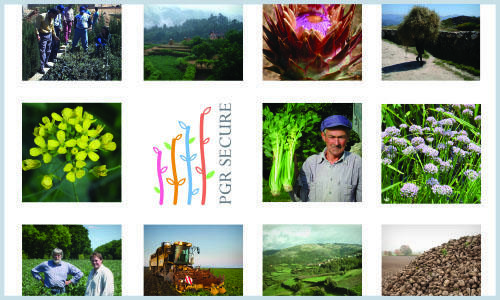Crop wild relatives and landraces conference open for abstracts

The call for abstracts for the international conference on Enhanced genepool utilization - Capturing wild relative and landrace diversity for crop improvement is now open. The conference will be held in June 2014 in Cambridge, UK.
Since the beginnings of agriculture, wild plant species closely related to crops (crop wild relatives) and traditional, locally adapted crop varieties (landraces) have been used to improve the yields and nutritional quality of crops and provide resistance against crop pests and diseases. For example, a species of wild potato, Solanumdemissum, contains traits of resistance to late blight – the disease that affected Irish potatoes in the mid-1800s causing the Great Famine. By conventional plant breeding, this resistance was bred into commercial potato cultivars in the 1940s and 1950s.
Crop wild relatives and landraces are threatened by climate change, habitat loss, environmental degradation, changing markets and farming practices. In Europe, 27-42% of crop wild relatives are predicted to be lost by 2080 due to climate change.
While the value of crop wild relatives and landraces for food security is widely recognized by the scientific and policy community, there is a lack of knowledge about the diversity that exists and how that diversity may be used for crop improvement.
Started in 2011 and funded by the EU, the ‘PGR Secure Project’ aims to close this knowledge gap by researching fast and economic methods to identify and make available genetic material that can be used by plant breeders, and by developing strategies for the conservation of European crop wild relative and landrace diversity.
As part of the project activities, ‘PGR Secure’ is organizing an international conference in Cambridge, UK, from 16-20 June 2014. Scientists and experts from around the world will gather to discuss the current status and future use of crop wild relatives and landraces diversity to improve agricultural production, increase food security, promote conservation and sustain the environment.
For more information about the call for abstracts and the conference, visit the PGR Secure website
PGR Secure Project Partners
The University of Birmingham
Wageningen UR Plant Breeding and Centre for Genetic Resources
Bioversity International
The University of Perugia
Julius Kuhn‐Institut, Federal Research Centre for Cultivated Plants
NordGen
MTT Agrifood Research
The University of King Juan Carlos
ServiceXS BV
The University of Nottingham
European Association for Research on Plant Breeding
